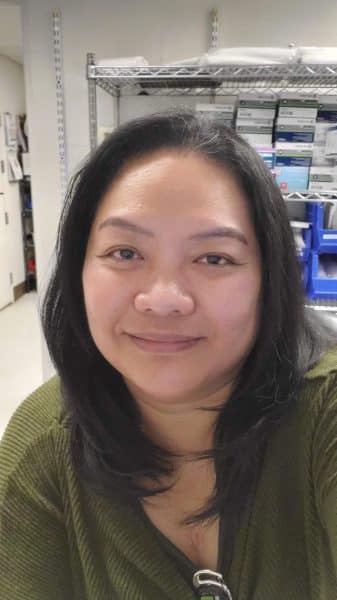
Wilhemina Marapao | MSN, RN, CPAN
My Certification Story
I took and passed the CPAN exam in 2010. I quietly reviewed for the exam because I didn’t want the pressure of telling my co-workers and not passing. I shared with my two boys that I will be preparing for an exam, and my time will be divided between work, home, and review materials. They didn’t understand why I had to do it, but they were very supportive. I graduated BSN many, many years ago and have been at the bedside since then. I was nervous going back to reading textbooks, but I was motivated to learn more. I had been attending national & local ASPAN conferences and noticed how certified nurses have a glow and a different perspective when they talk. I asked myself, “can I be certified?” Presently (2023), I am still certified and have no regrets about the hard work and time spent reviewing. After being certified, I realized I could go back to textbooks. Hence, I enrolled in graduate school and finished my MSN a few years after obtaining my CPAN. Being certified validates that I’m rendering excellent care to our patients; they only deserve the best. I value what the certification did to my career. I became a traveler for PACU, was able to work at the magnet facilities, and got assignments quickly without being interviewed because of my certification. I encouraged PACU nurses in one hospital where I work and became a CPAN champion. I signed up for the CPAN/CAPA question of the week and emailed my co-workers questions and we discussed answers.
My Benefits
I bought Perianesthesia Nursing book by Cecil Drain and studied diligently, chapter by chapter, for four months. I followed the CPAN/CAPA certification review blueprint by ABPANC. I bought the ASPAN Perianestheia Nursing Standards, Practice Recommendations and Interpretive Statements and became familiar with it. I took the practice tests online as if it was an actual test. Eventually, I gained confidence and enrolled to take the exam and passed.
My Advice
You have to study, study, and study more. A friend told me before that we have 24 hours in a day; if you spend at least four hours studying, you still have 20 hours left. I remember because I didn’t tell anybody at work that I was taking the exam; I was working the day before. I had a patient post cholecystectomy who ended up on a ventilator in the PACU. One of the scenarios and questions I had on my exam was post-cholecystectomy on a ventilator.
